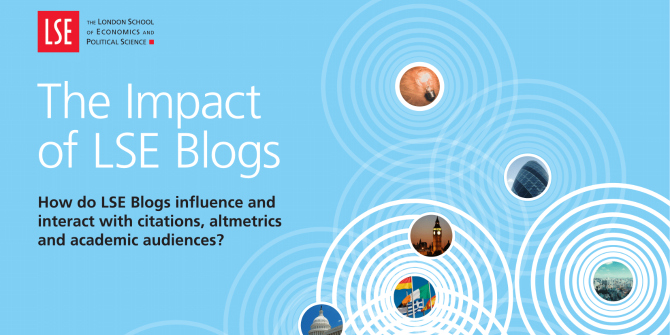
 To mark the thirtieth anniversary of the death of social theorist Michel Foucault, Anne Barron and Mary Evans have organised a conference in late June for academics to reflect on his legacy in relation to higher education. Governing Academic Life will create an interdisciplinary space to discuss the public university, neoliberalism, academic publishing, and assessment measurement. Managing Editor Sierra Williams asked the organisers to elaborate on the motivations behind the event and the impact of Foucault’s work today.
To mark the thirtieth anniversary of the death of social theorist Michel Foucault, Anne Barron and Mary Evans have organised a conference in late June for academics to reflect on his legacy in relation to higher education. Governing Academic Life will create an interdisciplinary space to discuss the public university, neoliberalism, academic publishing, and assessment measurement. Managing Editor Sierra Williams asked the organisers to elaborate on the motivations behind the event and the impact of Foucault’s work today.
What inspired the idea for a conference about academia itself? What do you hope to achieve over these two days?
Mary: The conference in an exercise in reflexivity; academics seldom have the opportunity to discuss general issues about their profession (as opposed to endless discussions of detail/specialist concerns) and providing a locus for this discussion is the main aim of this conference.
Anne: The LSE’s motto is ‘to know the causes of things’. To acquire that knowledge is necessarily to drill down below the surface of observable phenomena: ‘things’ can be seen; ‘causes’ need to be brought to light. Academics can be very expert at exploring the hidden determinants of other people’s worlds – how other people’s practices and institutions are underpinned and choreographed by wider economic, social and cultural logics, for example. We’re trying to create an occasion for academics to direct the same kind of critical attention towards our own world.
What does Michel Foucault’s legacy have to do with academia today? Can you give a brief account of how his understanding of ‘governmentality’ relates to the contemporary academy?
Anne: Foucault had an abiding interest in how human beings are constructed as particular kinds of ‘subjects’: for him, subjectivity had to be understood as an artefact, not as natural or necessary. Of course this is a familiar theme in social theory – Marx wrote of how ‘bourgeois’ identity was produced in capitalist social formations, for example, and feminists have long explored how gender identities are constructed. But Foucault is distinctive for spelling out the micro-practices by which people are ‘made up’ – as rational market actors, say – and how these interoperate to form larger assemblages that mould human behaviour in subtle but powerful ways.
His writings on ‘governmentality’ – by which he meant the whole array of arts and techniques by which subjects are formed and conduct is guided – started to appear in the late 1970s, not long before he died (on June 25, 1984). In these writings Foucault explored how these assemblages of practice and knowledge connect with the activities of the modern state. He was particularly interested in neoliberal governmentality, which he diagnosed as oriented towards enabling competitive mechanisms to play a regulatory role in every corner of social life, while nullifying anti-competitive mechanisms (such as habits of collaborating and norms of solidarity). The relevance of these investigations to the contemporary academy is clear: academics are increasingly ensnared in webs of practices and routines (like counting their citations and bidding for research grants) that construct us in ways that suit a neoliberal social and economic order. On the occasion of the 30th anniversary of Foucault’s death, it makes sense to foster discussion about how we are made up as competitive individuals in a neoliberal world, and what the ‘main danger’ is here.
 Michel Foucault, painted portrait. Image credit: Thierry Ehrman (Flickr, CC BY)
Michel Foucault, painted portrait. Image credit: Thierry Ehrman (Flickr, CC BY)
Mary: Foucault is pre-eminent amongst social theorists for his work on forms of intellectual/psychic control. Whilst the concept of internalisation has been well known amongst social scientists throughout the 20th C. it was Foucault who suggested the homology between internalised practices and assumptions and social power. It is the nature – the degree and the possibility – of the homologous relationship between aspects of the normative culture of the academy and the needs of neo-liberal states/States that is the focus of this conference.
Why do you think that academic labour and the knowledge economy are so heavily contested?
Mary: Very simply, because of the question – as Robert Lynd asked decades ago – of what knowledge is for. Who does it – in the widest sense – enrich? As important is the issue of – to put it colloquially – the relationship between the piper and the tune.
Anne: There is an interesting ambiguity to this question. On one level, academics are contesting their positioning as nothing other than ‘labourers’, whose ‘work’ can be regarded as just more grist to the e-mills (and the few remaining paper mills) that sustain the ‘knowledge economy’. On another level, academics are recognising that their reduction to knowledge workers is now (becoming) a reality; and they are contesting working conditions that frequently eviscerate the distinction between work and life completely. But both forms of contestation are rightly proceeding in parallel: scholarly communication is not reducible to knowledge work, but scholars are nonetheless knowledge workers.
What roles do social media play in the formation of the identity and practices of a researcher today?
Mary: Complicated : as a way to raise what may be marginalised issues but at the same time very closely related to modern needs for ‘sensation’.
Anne: I agree. Spaces like Twitter are teeming with heterodox views and serve as a constant reminder of the diversity of the social world. Participation in these spaces can serve to provoke academic researchers to break out of our silos and engage with the plural and messy reality that surrounds us. On the other hand, you only find what your settings allow you to find. And social media are becoming platforms for the building of personal brands: less a forum for listening than for blowing one’s own trumpet and accumulating reputational capital! But to say this is not to condemn anyone who engages in these strategies: they are becoming unavoidable, and the real question is how we can use them in ways that are interesting and progressive rather than boring and conventional. I very much like Jodi Dean’s work on these themes.
What are some further directions you see for these types of conversations? What is needed to ensure these conversations keep happening?
Both: Forward, and lots of hard work! We hope to publish the discussions to a wider audience in some form. Through that and other means we’d like to add to the global network of academics who are interested in what Foucault liked to describe as ‘problematisation’ – in this instance, of the organisation and priorities of the contemporary university.
Governing Academic Life will take place on 25-26 June at the LSE and the British Library. For more information and to book your place, visit the Governing Academic Life website. You can follow the conference discussion on Twitter @GovAcLife and the hashtag #GAL2014.
Note: This article gives the views of the authors, and not the position of the Impact of Social Science blog, nor of the London School of Economics. Please review our Comments Policy if you have any concerns on posting a comment below.
Anne Barron is Reader in Law at the London School of Economics and Political Science. She is a graduate of University College Dublin (BCL) and Harvard Law School (LLM), and held lectureships at the University of Warwick and University College London before joining the LSE.
Mary Evans is a Centennial Professor at the LSE, based at the Gender Institute. She has written on various aspects of gender and women’s studies and many of those publications have crossed disciplinary lines between the social sciences and the humanities. She was a founding editor of the European Journal of Women’s Studies and is presently working on a study of narratives – and continuities – of class and gender. Her latest edited book is Gender (Routledge, 2010).








1 Comments